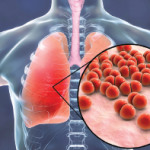A passion to improve the clinical reasoning skills of future doctors led Maria Dall’Era, MD, associate professor of medicine and director of the University of California San Francisco (UCSF) Lupus Clinic, to create a revolutionary application for smartphones and tablets that could modernize medical education. With funding from the Rheumatology Research Foundation’s Clinician Scholar Educator Award, she is developing an app that exposes medical students to rheumatology, so they are better prepared to care for those living with rheumatic diseases.
“Patients want their doctors to be able to piece together complex information and come up with an accurate diagnosis,” says Dr. Dall’Era. “Although modern technology has enabled students to quickly look up facts, the ability to perform clinical reasoning is a skill that needs to be taught and practiced throughout medical education. The ability to think critically and reason through a difficult case is what ultimately defines a great physician.”
Dr. Dall’Era’s app, Practice Improvement Using Virtual Online Training (PIVOT), is a mobile virtual patient simulation that allows medical students to evaluate a virtual patient’s records, view interviews and exams, and order lab tests just as they would in a clinical setting. Students must sort through all of the information, identify which facts are most relevant and, eventually, diagnose the virtual patient. In the process, they use the app to answer open-ended questions, work in a team with other students and receive real-time feedback from their instructor. All of these features can be accessed on a smartphone, which fits the busy life of a medical student.
“I would often find myself answering questions and looking up relevant clinical information on the shuttle between hospital campuses,” says Jamal Saleh, a UCSF medical student who volunteered for PIVOT’s first trial run. “In comparison to our often lecture-based curriculum, PIVOT was highly interactive.”
Skills to Better Diagnose Patients
Improving clinical skills is especially important for the diagnosis and treatment of rheumatic diseases, because symptoms can differ widely from person to person, making diagnosis difficult. More than half of lupus patients suffered for at least four years and saw three or more physicians before getting the right diagnosis. Dr. Dall’Era believes that meaningful education experiences like PIVOT can help reduce that time by introducing future doctors to rheumatic diseases and helping them develop the skills they need to better diagnose patients.
“By working through the case in the app, students will learn about the symptoms and signs of rheumatic diseases, as well as other diseases that mimic rheumatic diseases,” explains Dr. Dall’Era. “Getting exposure to rheumatology is so critical for medical students at this stage of their education.”
Addressing the Shortage of Rheumatologists
Not only is PIVOT helping students to become better doctors in the future, it also has the potential to address the growing shortage of rheumatologists. Dr. Dall’Era hopes that PIVOT can also help spark interest in rheumatology by introducing students to the field through a meaningful and engaging experience.



